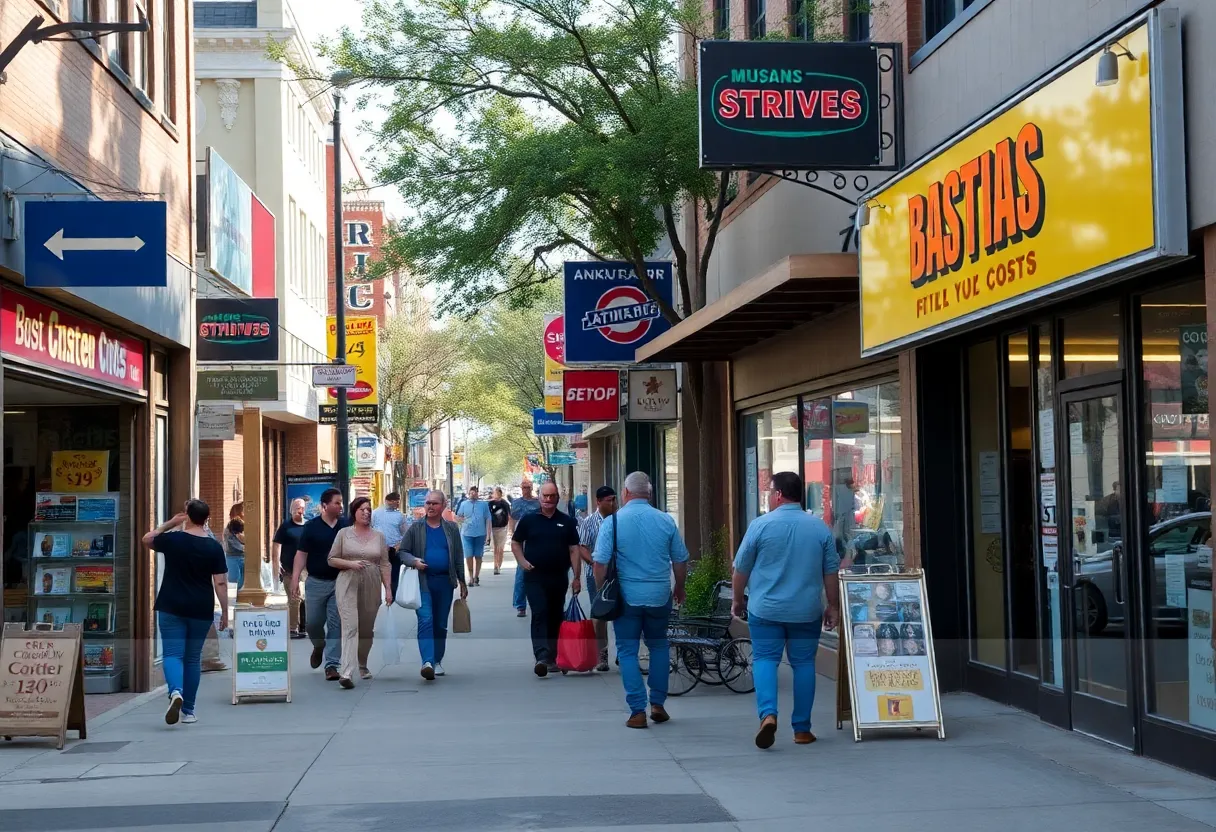News Summary
Austin small businesses are grappling with significant challenges due to recent tariffs and ongoing price increases that are reshaping the local economy. Business owners across various sectors are forced to raise prices to maintain revenue, which in turn impacts consumers facing increased costs. With family expenses projected to rise by $4,000 annually, concerns grow over long-term repercussions for small businesses and the housing market. Experts warn that prolonged tariffs could lead to more closures, urging a need for immediate relief and alternative strategies to navigate this financial landscape.
Austin is facing significant challenges as small businesses contend with the repercussions of recent tariffs and ongoing price increases. These factors are poised to reshape the local economic landscape, particularly affecting small business owners and consumers alike.
What Happened
In response to new tariffs imposed by the government, many small businesses in Austin are experiencing rising costs that necessitate price adjustments. These tariffs particularly impact the price of essential goods and services. As a result, small business owners are compelled to increase their prices to maintain revenue, a trend that has been exacerbated by ongoing supply chain issues that stemmed from the COVID-19 pandemic. With vendors raising their costs, businesses face a challenging market where price hikes are becoming the norm rather than the exception.
Who Is Affected
The local small business community is at the forefront of this pricing dilemma. Business owners across various sectors, including retail and food services, are feeling the strain. For instance, retailers and coffee shop owners are raising their prices significantly due to increases from vendors. Specific examples include coffee prices that have surged by roughly 10% at some shops, and reports of vendor price increases ranging from 8.5% to 15%. This situation not only affects business owners but also impacts consumers who may have to pay considerably more for goods and services.
Families Facing Increased Costs
Families in Austin could potentially face an additional annual expense of $4,000 for the same goods due to these tariffs. This increased financial burden could impact disposable income and consumer spending, further affecting local businesses reliant on steady customer traffic.
Official Response
Local economists and experts are expressing concern over the long-term implications of sustained tariffs. Analysts warn that these financial pressures could lead to an increased rate of small business closures in Austin, particularly among enterprises with already tight profit margins. While officials at different levels have been tracking these developments, little has been done to provide immediate relief to businesses and consumers facing these economic pressures.
Impact on Housing Market
The tariffs are also expected to have cascading effects on the housing market in Austin. Analysts indicate that the 25% tariffs on imports from Mexico and Canada will impact essential building materials, including lumber, gypsum, and drywall—critical components for new construction projects. Housing prices may rise as a result of increased costs of materials, and prolonged tariffs could delay construction timelines. Currently, even though Zillow reports a 4.2% drop in home prices over the past year, the potential for increased costs could complicate the market, especially for new buyers.
Opportunities and Risks
While there are opportunities for homebuyers due to lower mortgage rates, the looming impact of tariffs complicates the housing situation. Real estate professionals express caution, warning that the increased costs from tariffs could lead to price hikes in existing homes as construction becomes more expensive.
What’s Next
In the face of these challenges, small businesses and consumers are left to navigate an uncertain landscape. Business owners are seeking alternative suppliers to mitigate rising costs, while continuing to monitor vendor price adjustments in hopes of stabilizing their pricing strategies. As the economy grapples with ongoing tariffs and supply chain disruptions, many are left wondering what the future holds for the local economy.
Overall, the combination of tariffs, price increases, and the potential impact on housing could have a multifaceted effect on the economy in Austin, prompting businesses, policymakers, and experts to reevaluate strategies for navigating these market challenges.
Deeper Dive: News & Info About This Topic
HERE Resources
Arjav Ezekiel of Birdie’s Nominated for James Beard Award 2025
President Trump’s New Tariffs Spark Global Trade Tensions
Austin Businesses Concerned Over New Tariffs Impact
James Beard Awards 2025 Finalists Announced in Chicago
Trump Administration Revokes De Minimis Tax Loophole
Planning Commission Postpones Austin Transit Sites Hearing
Texas Shines at the 2025 James Beard Foundation Awards
SXSW 2025: Cultural Identity at Risk Amidst Corporate Influence
Austin: Party City Stores Stand Firm Amid Nationwide Closures
Texas Small Business Owners Advocate for Property Tax Exemption Increase
Additional Resources
- Fox 7 Austin: Trump Tariff Impact Austin
- Wikipedia: Austin, Texas
- KVUE: Austin Coffee Shops Tariff Prices
- Google Search: Small Business Impact Tariffs
- Fortune: Consumers Trump Tariffs Price Hikes
- Google Scholar: Economic Impact of Tariffs
- Axios: Texas Trump Tariffs Economy
- Encyclopedia Britannica: Tariffs
- Newsweek: Impact of Trump’s Tariffs on Texas
- Google News: Tariff Impact Austin








